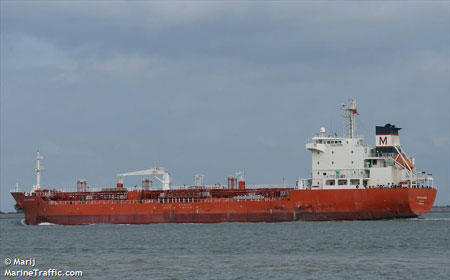BELIZE CITY, Wed. Apr. 1, 2015–The price of premium gasoline went up again last night, from $8.80 a gallon to $9.36 a gallon, and the price of kerosene increased similarly from $5.45 a gallon to $6.13 a gallon, while the price of regular gasoline remains at $8.80 a gallon and the price of diesel actually fell from $7.97 a gallon to $7.26 a gallon.
Another price change may be coming in the next few weeks, when the next shipment of fuel products lands in Belize from Curaçao. The Ministry of Finance is the entity which sets the pump prices, based on the cost of the fuel from the supplier, as well as the cost of landing the product here in Belize. In total, the country is expected to receive about 50,000 barrels of fuel products, the bulk of it being diesel (25,000 barrels) and regular gasoline (18,000 barrels). The remainder will be jet kerosene, which can be used for both domestic and commercial purposes (such as airlines).
John Mencias, deputy chairman of Alba PetroCaribe Belize (APBEL), the joint venture company which Belize and Venezuela had established to manage the PetroCaribe program, under which fuel is imported from Venezuela, said that the shipment should be loaded early next week and arrive in Belize between April 9 and 12. Although the shipment will be a few days behind the original schedule, Mencias said that Belize has enough fuel supplies to last until the middle of the month.
According to Mencias, the demand for fuel products has been on a sharp increase. In Parliament last week, it was alleged that contrabandistas are taking advantage of the price differential between Belize and neighboring countries and illegally smuggling fuel products outside of Belize. Mencias said that this could be a factor contributing to the spike in demand.
Mencias noted that in the first two months of 2013 (January to February), Belize imported 148,540 barrels of fuel products, but in the first two months of 2014, that figure was up by 21.9% to 181,126 barrels. Although PEDEVESA in Venezuela stopped providing Belize with its high-grade premium fuel this year, APBEL imported 189,923 barrels of fuel for the first two months of 2015, with two shipments having arrived in January and another two shipments in February. At least 10,000 to 15,000 barrels of premium fuel will have been imported by Puma to satisfy the local demand for premium fuel, Mencias told us. He said that overall, the annual demand for fuel products has been increasing by about 25% for this period.
As for the month of March 2015, Mencias said that the level of importation will end up being the same as it was in the previous year due to the 10-day delay in shipment from Venezuela, which he said was due to scheduling problems there and not problems with the refinery.
While Mencias spoke with us today, APBEL’s supplier, PEDEVESA confirmed that the 50,000 barrels is slated to arrive in Belize by April 12. That shipment should cost roughly US$3.8 million, which would include the price of the product as well as the funds spent to cover transportation, insurance and freight charges.
Mencias says that although Venezuela had told Belize that it could no longer provide to us what it classifies as premium fuel, which, by Central American standards should have an octane rating of 89 but a rating of 91 by US standards, he said that the average octane rating for regular gasoline which Belize has been receiving from Venezuela for the past three months is 91 – the same as the US rating for premium fuel. The octane rating, he said, is tested alternatively by two companies operating out of Guatemala: Oil Test International (OTI) and Intertek.
However, it is noteworthy that there is no testing to verify what octane rating consumers are actually getting at the pumps.
Mencias had previously told us that most vehicles in Belize can operate on regular fuel, but he noted that there are some vehicles in Belize, a minority, that require premium gasoline, according to their manufacturers’ specifications. The Prime Minister’s SUV is one example, but Mencias said that the quality of regular gasoline now being received from Venezuela, with an octane rating of 91, is suitable for use in his SUV as well.
The downside is that Venezuela is committed by contract to supply regular gasoline with a minimum octane rating of 87 – which falls short of the US standard for premium gasoline.
Mencias explained that the higher the octane rating, the more efficient the fuel burning process is, but low-grade fuel can cause a knocking sound to be created by the engine of the vehicle because of an inefficient combustion process.
We know that some drivers who opt to use regular gasoline may add a fuel treatment to their fuel tank to reduce these problems. However, some consumers have raised valid questions over the possibility of distributors tampering with the fuel before selling it, in order to increase profit margins. As we reported back in December, fuel quality is not tested at the pumps, and the only tests that the Belize Bureau of Standards is equipped to conduct are tests to ensure that the amount of fuel the meter indicates you are getting is equal to what is actually going into your gas tank.
Mencias told us that a technical committee was to have been set up a few years ago and part of its mandate is to work on fuel quality and distribution standards. We have been informed by the Belize Bureau of Standards that the fuels and lubricants technical committee, chaired by a representative from Puma, is now operational.

